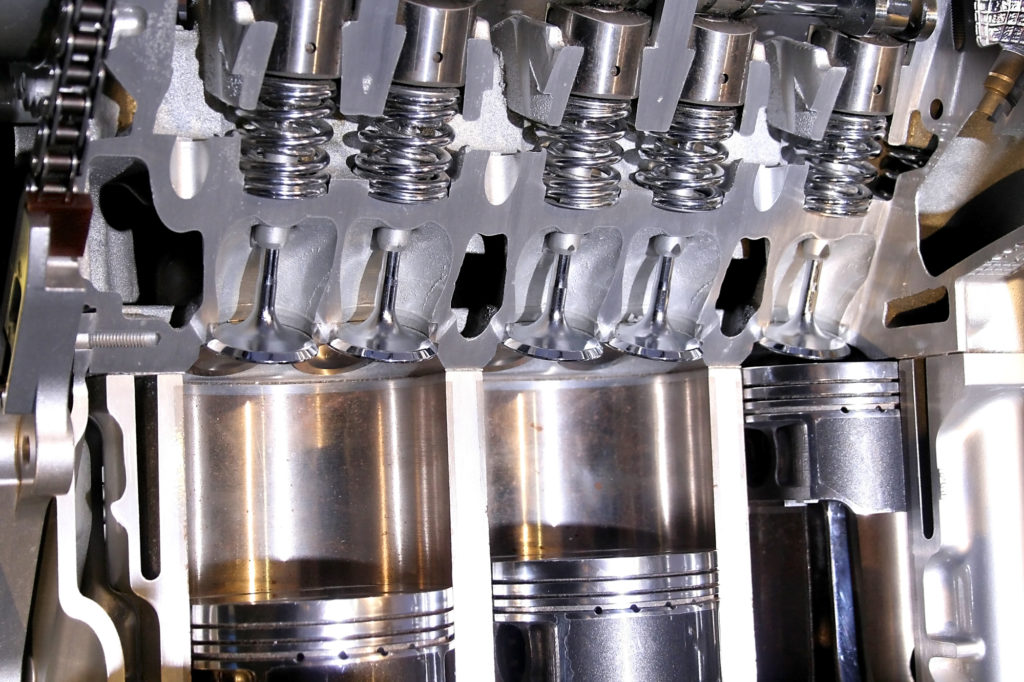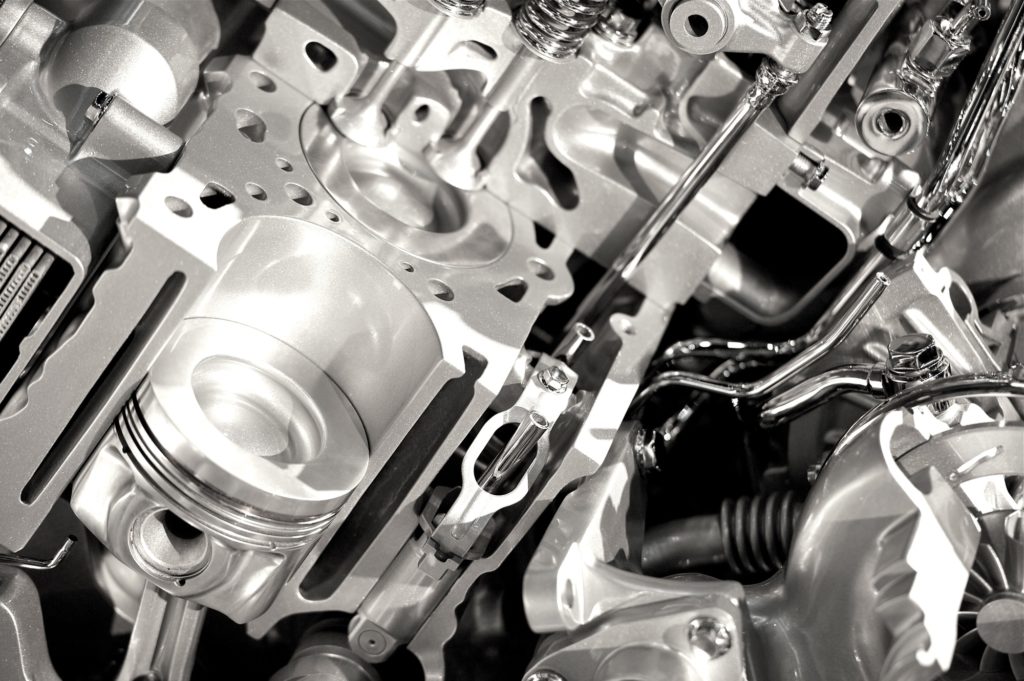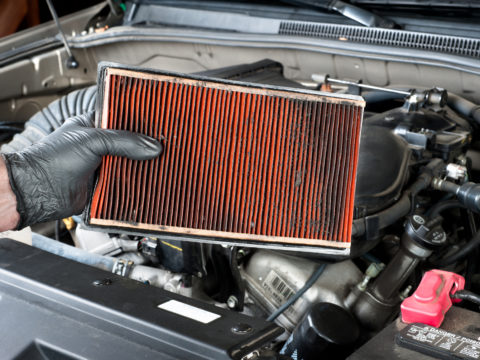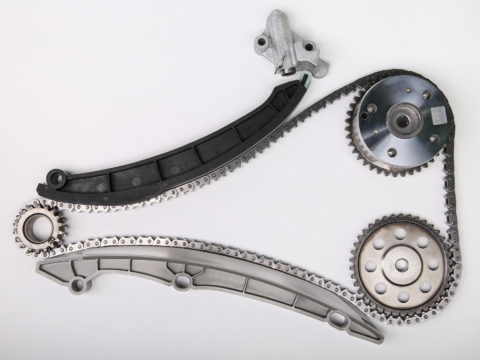Active Fuel Management, referred to as AFM, is a system in car engines that regulates the power used by engine cylinders, leading to more efficient use of fuel. This article will cover when the AFM Lifter fails, the many ways to detect it, and what you can do to prevent it from happening.

Contents
What Is An AFM Lifter?
What is an Active fuel Management Lifter, you ask? The AFM Lifter is a key part of the AFM mechanism; under certain conditions, the AFM Lifter will collapse, disengaging the 1-4-6-7 cylinders in the engine to decrease fuel consumption.
What is a Valve Lifter Oil Manifold, and where is it located?
The AFM activation is controlled by the VLOM, which dictates the delivery of pressurized engine oil to the AFM mechanism. This whole system is located on the very top of the engine block.
AFM Lifter diagram
- You can understand the AFM Lifter system by its different parts.
- The AFM cover is called the Lifter Oil Manifold Assembly (LOMA). This has an electrical connector, an oil pressure sender, and solenoids on the underside.
- The engine blocks are where the AFM tower and oil passages can be found.
- Last but not least, you have the lifters.
AFM Lifter Failure Symptoms To Look Out For
How will you know if you are having AFM lifter issues? There are several symptoms to watch out for aside from the check engine light.
Sudden stalling
If you experience a sudden and unexplainable stall while driving, this could indicate an issue with your AFM lifter. Aside from being inherently dangerous, this, alongside noticeable engine grinding, can cause serious damage to your engine.
Difficulty changing gears
If you feel stiffness when trying to shift gears in your car, this could be a sign of AFM lifter problems. Leaving this issue unattended can lead to wider damage in the car beyond the AFM system. In extreme instances, it can even damage the entire transmission system.
Loss of control
If you start to have control issues with your car, your car starts to want to swerve left or right. This could be a sign of AFM failure, and you should get your car checked as soon as possible.
Acceleration issues
While this could indicate power loss in the engine, mass airflow sensor failure, or a number of other potential problems. It is important to consider the AFM as a potential cause.
Strange engine noises
One symptom of cam or lifter failure is strange noises from the car’s engine compartment. This could be a ticking, flitting, or squeaking sound accompanied by damage indicators and engine misfire codes stored in the car’s memory. It goes without saying that strange noise coming from your car should never be ignored.

What Causes AFM Lifters To Collapse?
There are a number of things that can cause a collapsed lifter, find three of the main causes below.
Poor quality oil
Issues with oil cause most lifter faults. Low-quality oil is one of the leading issues that causes AFM lifter failure. Poor quality oil has more impurities than high-grade oil and can break down quicker, turning into sludge.
Sludge is not good for your engine. The primary use of oil in your engine is to lubricate all the important moving parts. Sludge doesn’t do that very well.
Low/depleted oil
The engine oil is essential to the proper functioning of your car’s engine. If your car’s oil levels aren’t adequate, your engine isn’t going to be lubricated sufficiently, and it can cause major (and expensive) issues. The same applies to the AFM components, so ensure that you regularly check your oil levels.
For more information on keeping abreast of your car’s oil levels and the different methods used, check out the How to Check Your Car’s Oil Level guide.
General wear
A simple and unavoidable fact of owning a mechanical car is that the engine will wear down over time through use. The AFM lifters are no exception; they are a part of the engine that needs to function regularly and, as a result, will degrade slowly.
How Do You Prevent AFM Lifters From Failing?
Now we know when to check for AFM lifter failure and what the leading causes are; how can we prevent the AFM lifter failures in the first place?
Check your oil
Oil pressure issues, oil quality issues, and simply running out of oil can all be causes of problems with your AFM. The best and most simple way to prevent AFM lifter failure is to check your oil regularly; ensure that it is full enough, and conduct an oil change if it’s not.
Most issues with your lifters can be prevented by simply keeping on top of oil changes.
Make sure you’re using the correct oil for your car; you can find this in your car’s owner manual. The oil is not something to cheap out on either, you don’t need to get the most expensive one, but you must pick a good quality oil for all the reasons mentioned above.
Disable the AFM
A great option for your car is to disable the AFM system when it’s not in use; this would help prevent AFM lifter failure. It will reduce the wear on the AFM system and help to avoid AFM lifter failure in the future. It is also quite easy to do without any real custom tuning.
The easiest method for disabling AFM is to use an AFM disabler. The AFM disabler will prevent the AFM mechanism from working when it isn’t needed, drastically extending the lifespan of the parts. In addition, it will reduce the oil consumption of your vehicle, meaning fewer oil changes.
Aside from an AFM disabler, another method for disabling AFM is to remove the brake booster vacuum sensor. However, this isn’t a fool-proof method, and your car may not like you removing its vacuum sensor (that stubborn check engine light!).
Conclusion
Issues with your AFM lifters are among the most common you may experience with your car. You’ll have no long-term problems as long as you treat your car well and get it serviced regularly.
Taking steps to prevent AFM lifter failure can help keep your lifters in top shape for as long as possible.














